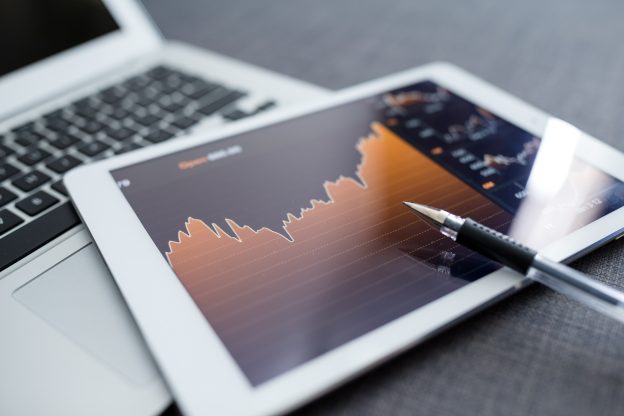Experts from the leading test service provider in the solar industry at the Intersolar Europe 2012, Hall A5, Stand 253 of the Neue Messe München, 13 to 15 June 2012 / Defining quality anew: Solar industry transformation continues / One-stop testing for manufacturers: global access in module testing and certification
Cologne, 4 May 2012. Module price decline and overcapacity, changed subsidy policies and investor uncertainty: the world-wide solar market, which boomed without restraint for a decade, is changing. In Germany, the consolidation of the industry is being further accelerated by the reduction of subsidies for solar energy. As the leading test service provider for the solar industry worldwide, TÜV Rheinland is responding to this trend. Jörg Althaus, head of Solar Energy at TÜV Rheinland: “The quality assurance aspect has acquired a completely new dynamic over the last few months – in production, with the product itself and in project implementation. Competition is becoming fiercer. Investor and bank requirements are getting stricter. And, at the same time, technical development is advancing.”
According to the assessment of TÜV Rheinland experts, who have worked in the industry since the early 90s, module manufactures will be able to survive in the market in the long term if they distinguish themselves from the competition; they can do this by offering outstanding module quality or high-tech modules for specific applications, for example with highly-developed performance in poor light or resistance to extreme climatic stress.
At the Intersolar 2012, TÜV Rheinland, which operates seven laboratory centres for solar modules around the world, will present comprehensive testing programmes and special test requirements for photovoltaic modules, which go far beyond the basic design certifications in accordance with IEC 61215 or IEC 61646. In module testing, these include salt spray and ammonia tests as well as the “PV+Test” comparison test and the “Power Controlled” test seal. In “Power Controlled”, the manufacturer’s production and products are checked by TÜV Rheinland in a continuous testing process to see whether they perform as promised by the manufacturer. “Performance reliability means revenue reliability” according to Althaus.
Thanks to its global network of laboratory centres and the corresponding accreditation for component and module testing, TÜV Rheinland is in a position to offer companies in the solar industry certification for all relevant target markets – the keywords here are “global access” and “one-stop testing”. In addition to testing in accordance with IEC standards, TÜV Rheinland also certifies products according to ANSI/UL 1703, MCS particularly for the British market or Golden Sun for China, for example.
TÜV Rheinland is also involved internationally in accompanying projects for the quality assurance of photovoltaic power plants. Jörg Althaus: “The aim is to ensure bankability and increase cost efficiency.” According to assessments by industry experts, banks and investors in particular are likely to be stricter with the requirements for large-scale projects. TÜV Rheinland provides services from yield forecasts and yield certification to location selection, accompanying the tender process, component qualification, construction monitoring, checking industrial engineering safety and building inspection to continuous system monitoring and recurring tests during operation. The major projects supervised in various countries include numerous power plants with an output of over 100 MWp.
At the Intersolar, TÜV Rheinland will also present services for testing components of modules and testing inverters as well as various innovation projects in the industry. These currently include issues such as fire prevention for modules and solar systems and developments in building-integrated photovoltaic modules (BIPV) – whether on the roof or in the facade. TÜV Rheinland is playing a key role in the development of appropriate standards and the drafting of “EN 50XXX Photovoltaics in Buildings”. As part of a global competence centre for BIPV at TÜV Rheinland, specialists are working on developing test scenarios, test benches and building up additional testing capacities. Safety aspects and performance issues are the focus here. The topics include sound protection, fire classification, wind loads and environmental impact, weathertightness and static issues, for example.
TÜV Rheinland: working for the solar industry around the world
TÜV Rheinland is one of the world’s leading testing service providers for the solar industry. The company first started laboratory-scale technical testing of solar components back in 1995. TÜV Rheinland’s network of experts for the solar industry now comprises more than 250 specialists in seven laboratories worldwide. As a global market leader for the testing and certification of solar modules, TÜV Rheinland operates test laboratories in Bangalore (India), Gyeongsan (Korea), Cologne (Germany), Shanghai (China) and Taichung (Taiwan), as well as at TÜV Rheinland PTL in Tempe (USA) and Yokohama (Japan). The specialists not only test modules and components, but also develop new test methods, collaborate on R&D projects for the use of solar energy and assist customers worldwide with the construction of solar power plants.
TÜV Rheinland is a global leader in independent inspection services, founded 140 years ago. The Group maintains a presence at around 500 locations in 65 countries with 16,000 employees. Annual turnover is EUR 1.4 billion. The independent experts stand for quality and safety for people, the environment, and technology in nearly all aspects of life. TÜV Rheinland inspects technical equipment, products and services, oversees projects and helps to shape processes for companies. Its experts train people in a wide range of careers and industries. To this end, TÜV Rheinland employs a global network of approved labs, testing and education centres. Since 2006, TÜV Rheinland has been a member of the United Nations Global Compact to promote sustainability and combat corruption.







